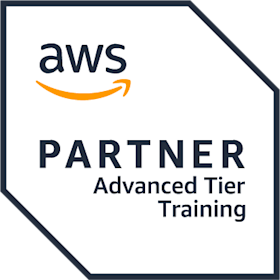In this course, students will learn how to use the combination of DevOps cultural philosophies, practices, and tools to increase the organisation’s ability to develop, deliver, and maintain applications and services at high velocity on AWS.
This course covers Continuous Integration (CI), Continuous Delivery (CD), infrastructure as code, microservices, monitoring and logging, and communication and collaboration. Hands-on labs give you experience building and deploying AWS CloudFormation templates and CI/CD pipelines that build and deploy applications on Amazon Elastic Compute Cloud (Amazon EC2), serverless applications, and container-based applications. Labs for multi-pipeline workflows and pipelines that deploy to multiple environments are also included.
This intermediate-level course is delivered through a mix of instructor-led training (ILT), hands-on labs, and group exercises.
We also offer a one-day AWS Jam Session to complement this course and enhance your learning. The AWS Jam is a gamified event, with teams competing to score points by completing a series of challenges based on concepts covered in the course.
See more information and scheduled dates here.


